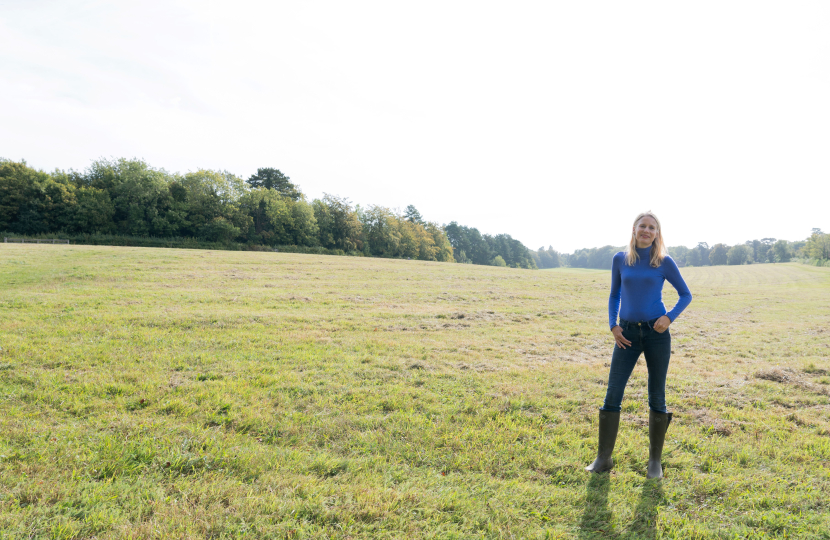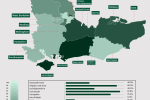
Today, Rebecca Paul MP, has submitted her response to the consultation on Labour's proposed reforms to the National Planning Policy Framework and other changes to the planning system.
"The National Planning Policy Framework (NPPF) is the document that lays down the rules and regulations dictating how planning applications in England are to be judged. The NPPF instructs local planning authorities on everything from how many houses they should aim to build to how much protection Green Belt land should get when applications are considered. It is a hugely important document and should only be amended with the greatest care and due consideration.
When the last government left office, the NPPF was written in such a way that good quality new homes could be built in the right places – but not at the expense of Green Belt land. A strong emphasis was placed on brownfield development and there was a (logical) expectation that our cities would grow to meet housing demand. The last Government’s planning reforms also required planning authorities to take proper notice of Neighbourhood Plans, meaning that local people got a strong and direct input into how their communities would develop over time.
This bottom up, consensus-based approach to planning is the best approach in my view. My constituency of Reigate has significant swathes of land that is designated as Green Belt and AONB, making development challenging. Yet even here - amongst the most beautiful, picturesque surroundings in the country – constituents recognise the need for more housing and are accepting of those developments that are well-thought through and in keeping with the local area.
With that said, my constituents are also keenly aware of the infrequent and overcrowded train services to and from London, the difficulty in getting a GP appointment, the lack of parking provision, increased flooding episodes and the roads that were never designed to handle such high volumes of traffic. My constituents know that Reigate & Banstead, and indeed Surrey as a whole, has already borne a greater volume of development than was ever appropriate or sustainable.
Home ownership is good for our economy, and it is good for our families. However, it does not follow that housebuilding everywhere in the country is the appropriate course of action. I am supportive of development in Reigate & Banstead where it is appropriate and considered, but it does not solve the major problem at hand. The issue that we must acknowledge, if we are to have meaningful planning reform, is that London has not been building nearly enough housing to meet demand.
Because of the scarcity of housing in the capital, home ownership has become something beyond the means of most Londoners. This in turn pushes people out of the city and into surrounding towns and villages. In effect, London’s unmet demand seeps out into Surrey. If we are to break this cycle, our capital must densify in a similar way to other global cities and build sufficient homes for the large population that wishes to live there. This is not a panacea, but it is the single most important change which would help mitigate overdevelopment in rural Surrey.
A further issue which these changes and this consultation could have – but did not – seek to address is the practice of ‘land banking’. Land banking describes instances where developers purchase land that is, or may become, suitable for development and then hold it for many years rather than immediately developing it. If the Government wanted to be genuinely radical, it might have considered measures to discourage this.
Unfortunately, the proposed changes to the NPPF detailed in this consultation will do nothing either to protect my constituents from overdevelopment or to encourage densification and rapid development in London and other major cities. What is offered instead is the return of mandatory housing targets, meaning that a formula set in Whitehall, rather than democratically elected local councillors and carefully written Neighbourhood Plans, will now decide how many homes must be built and where. Under these proposals, planning authorities will lose their discretion over housing numbers and in a constituency like mine, this can only serve to force large scale development onto Green Belt land.
Indeed, the Government has already announced that housing targets for Reigate & Banstead will increase significantly. We will go from having an advisory target of 644 houses per year to a mandatory target of 1264. This is a 96% increase.
These proposals would also strip out the requirement that new homes be ‘beautiful’. This may seem like a superfluous detail but in fact this provision allowed local planning authorities to consider the character and aesthetic of a proposal – and the area it is to be built in – before making a decision. Our towns and villages have their own character and sense of place. It would be tragic to see these eroded by a wave of ill-conceived new developments; after all, when a village’s character is lost, it can never be reclaimed.
Consequently, I cannot support these proposed changes to the NPPF – this is not because I do not believe we urgently need to implement a solution to the housing crisis in this country – but because I believe a better solution already exists. We have brownfield sites available for development in cities across England, if we move to develop these, we give people the homes they need and also reap the economic benefit of large-scale urban development. The Government would be unwise to allow this opportunity to pass in favour of unwanted, unsustainable building on Surrey’s precious Green Belt."




